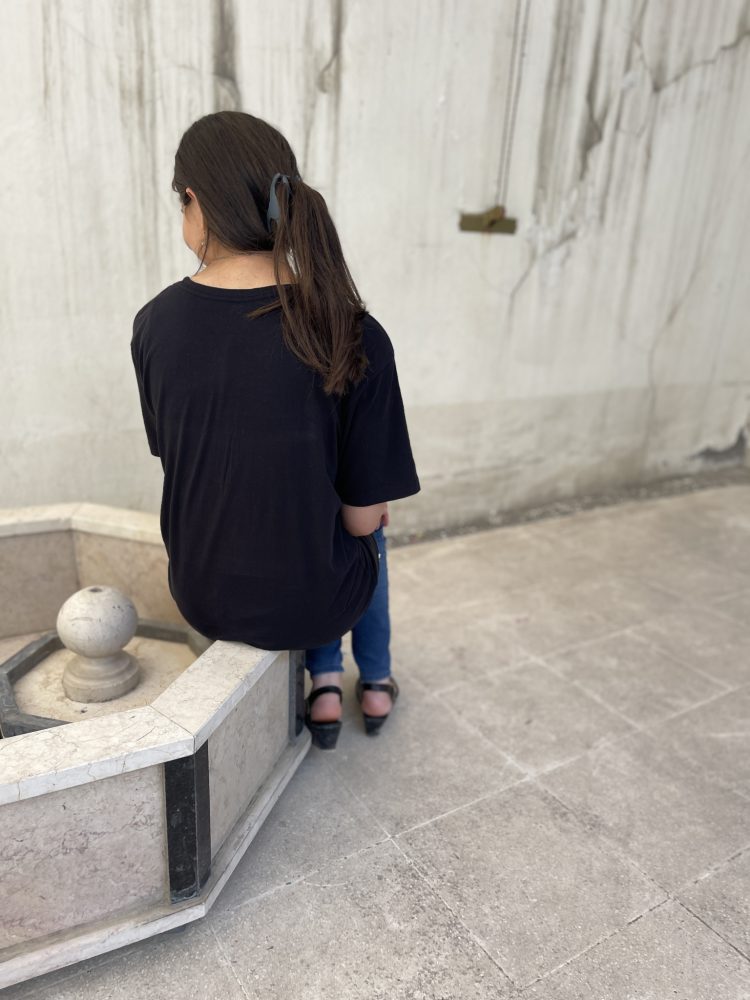In Times of Uncertainty, Resilience is Hope and Light

My name is Deeba Raine. I am from Afghanistan, originally from Logar Province.
I grew up in Kabul and completed my high school there. Currently I am majoring in Computer Science with a concentration in Software Engineering at Western Kentucky University.
I miss my hometown a lot. One of the things I love most about my country is the weather. I truly miss that. The people there are also very hospitable and welcoming.
I came to WKU on my own in 2023. I started my university back in my home country at the American University of Afghanistan (AUAF) around 2019. I was awarded a full scholarship based on my linguistic proficiency and GPA at school.
Everything was going well, and I was continuing my education as usual, feeling excited for my school to reopen after the COVID-19 quarantine. Hearing the unexpected news of our government collapse left us devastated. With so much uncertainty ahead, I was moved with a group of students at our school to Kyrgyzstan where I was given the opportunity to continue my education at the American University of Central Asia (AUCA).
While I felt fortunate and grateful for the opportunity, it was still very challenging to navigate a new country without any mental preparation and without my family. I had new experiences that were both challenging and full of life lessons.
I will always remember the moment when Dr. Arni, a representative from AUAF, met us before our flight to Kyrgyzstan. He handed each of us a small lava stone from his travels, reminding us that a difficult journey was ahead — and encouraging us to be as strong and resilient as those stones.
As I went through those stages, looking back, I can now see the world from a completely different perspective. I discovered so many things about myself that I didn’t know before — my strengths, my weaknesses, and my views about life and its uncertainties. I learned that we will all face challenging moments, make mistakes simply because we don’t know better, and encounter unexpected and unpleasant events, and that’s completely okay. It’s all part of human experience.
Two years ago, I would have described myself and my situation as devastating and full of uncertainty. I felt things will never get better. But today, I see it differently. It was part of my journey, a chapter of my life that shaped me into the person I am today. It was an experience I had to go through to grow stronger and discover who I truly am.
In times of uncertainties we have two options: go back to where we have started, or stay strong and fight back.
I learned resilience, not just as a concept, but through real-life experiences.
While it’s easy to give up, especially when facing challenges with no loved ones around and in completely different circumstances, I chose the tough road. I accepted my fate and the situation I was in, and I fought back, and I learned so much.
When I arrived to the US, I went straight to campus. I spent my first night in the US at the residence hall and was greeted by a couple people from the Refuge Bowling Green.
In my country, girls had limited freedom and often had to rely on the men in their families for basic tasks like grocery shopping, attending appointments, or driving. Moving to a land of freedom where girls and boys equally take responsibility for their daily tasks and have equal right and opportunity in every aspect of life was a major turning point for me.
Life has changed so drastically, but my dreams and plans have remained intact. I was given the same privilege and opportunity to continue my education as I would have in my home country. Right now, I am doing exactly what I should be doing — focusing fully on my education. I want to dedicate myself completely to my studies. When I think about the millions of girls who are left locked inside their homes without access to education, I realize I must not take this opportunity for granted. As one of the few who has been given this chance, I feel a deep responsibility to give back — to my people and to my homeland.
One person alone may not change the lives of millions, but one action by one person can touch and impact the lives of many. Women of Afghanistan have faced challenges throughout history, yet they have always shown resilience. Even with school doors closed to them, women in Afghanistan continue to protest and risk their lives. I would say there’s always hope. It’s not the end of the road.
Today, the weather was beautiful. It reminded me of spring in Afghanistan. I sat down, watching the sun shining through the branches of a tree, and I thought, One day, the sun will shine just like this in the lives of every Afghan who has lost hope and light.
We must stay resilient.
Resilience is that hope.
It is that light.
It is the strength to beat the darkness.
Our team members obtain informed consent from each individual before an interview takes place. Individuals dictate where their stories may be shared and what personal information they wish to keep private. In situations where the individual is at risk and/or wishes to remain anonymous, alias names are used and other identifying information is removed from interviews immediately after they are received by TSOS. We have also committed not to use refugee images or stories for fundraising purposes without explicit permission. Our top priority is to protect and honor the wishes of our interview subjects.